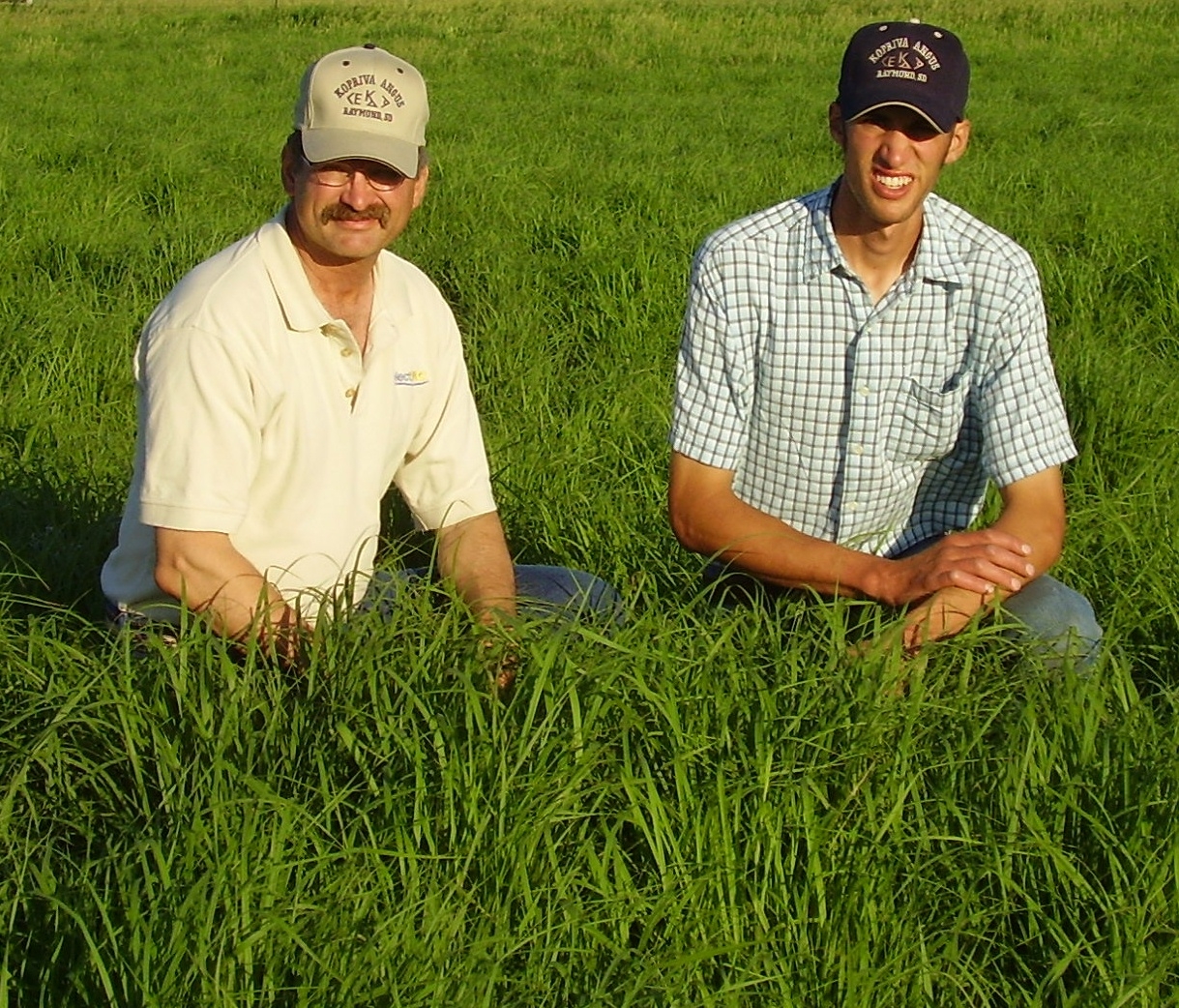 Like many of their neighbors, the Koprivas were initially grain farmers. However, economics and Jim’s fondness for cattle prompted them to transition their cropland to grassland and hay land over the past decade.
Like many of their neighbors, the Koprivas were initially grain farmers. However, economics and Jim’s fondness for cattle prompted them to transition their cropland to grassland and hay land over the past decade.
Today, Kopriva Angus, which Jim and Karen manage with their son, Lee, and daughter, Angela, consists of approximately 2,000 owned and leased acres, 130 of which are no-tilled and cropped with a spring wheat-winter wheat-soybean rotation. The remaining acres are native rangeland, seeded pastures, and hay land.
Some of the Koprivas’ conservation practices include native grass seeding, rotational grazing, and the use of cover crops and crop residue stubble to extend the grazing season. The family also uses controlled burns, which have been effective for reducing invasive vegetation in native pastures and promoting the return of species diversity.
The Koprivas are also highly invested in wildlife habitat and water quality. They leave some acres on each quarter of land as habitat for wildlife such as whitetail and mule deer, ducks, geese, grouse, partridge, pheasant, coyotes, fox, hawks, and owls. The ranch is in an area where excess flooding is a concern, so the Koprivas’ grass management efforts have helped improve water quality on their ranch through reduced erosion.
“As I worked with and became friends with Jim and Karen over the years, I have gained a tremendous amount of respect for the way in which they were able to take a farm and turn it into a productive, sustainable ranch that will be able to be passed to the next generation in better shape than when they started,” wrote Mark Washechek, NRCS, in his letter of recommendation. “It is admirable to have the conservation ethic and it all starts with this love and respect for the land.”
 Sign In
Sign In
 Sign In
Sign In
